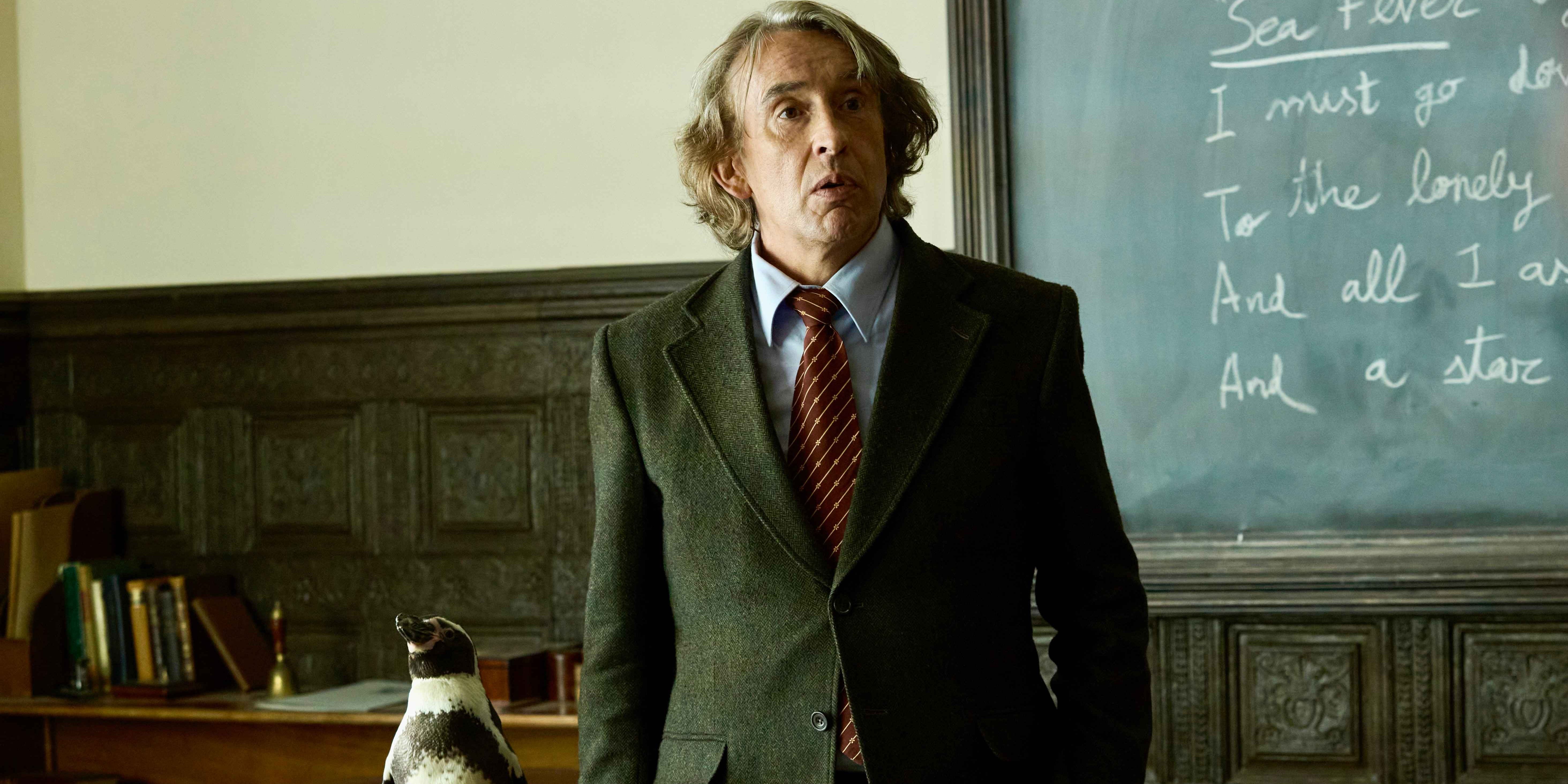‘The Penguin Lessons’ by Peter Cattaneo is a biographical period drama film that follows the life of Tom Michell, an English teacher who moves to Buenos Aires on the eve of the 1976 Argentine coup d’état, which led to the establishment of a military dictatorship in the South American country. As the protagonist navigates the difficult journey of teaching noisy and privileged students at Saint George’s College, he finds an unlikely friend, a penguin who walks into his life by sheer happenstance, and refuses to leave his side. By befriending the strange creature, Michell learns that there is more to life than cynicism, leading him on a journey of self-discovery and liberation from his own limitations in terms of bonding with others. The narrative authentically explores the themes of authority, freedom, control, destiny, friendship, empathy, and humanism.
The Penguin Lessons is Inspired by the Real-Life Experiences of a Teacher
The movie is based on the eponymous memoir by Tom Michell, who also serves as co-writer along with Jeff Pope. Though cinematic liberties may have been utilized in terms of scene construction or narration, the majority of the film is based on Michell’s account, which is his own recollection of the time he spent in Argentina during the dictatorship. The opening credits of the narrative reveal that it is inspired by real events. In an interview with The Upcoming, Tom Michell touched on the movie’s narrative strength and dynamism, including the picturization and creation of the penguin using computer tricks.
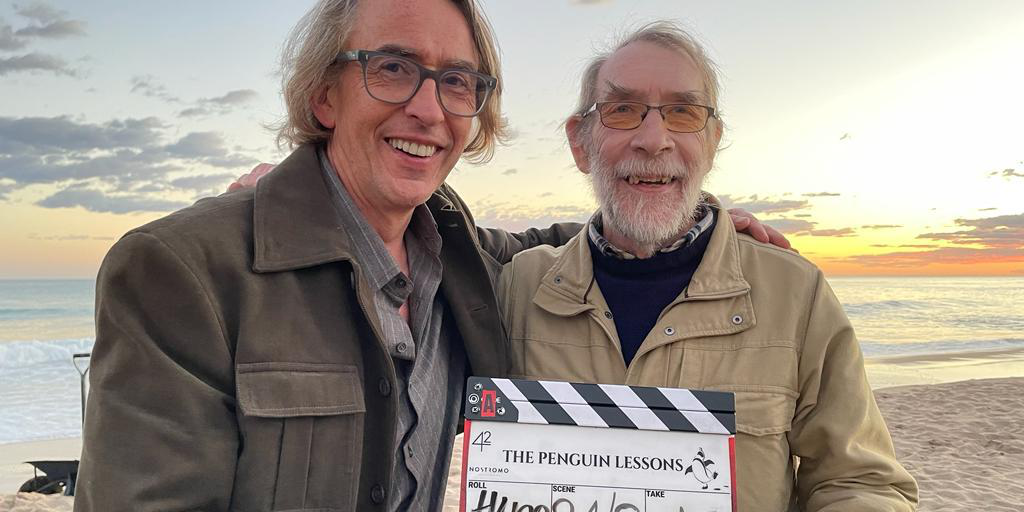
Michell said the penguin in the scenes seemed very much like the penguin that he encountered in his life, thinning the gap between reality and fiction. The portrayal of the initially arrogant and privileged college boys in the story also earned special praise from the author, who also went on to praise their acting abilities. Steve Coogan, who plays the protagonist in the drama, earned special praise from Michell, who credited him for his accurate performance and talent for switching between dramatic and humorous elements within the narrative. The author confirmed that in real life, he had a deep and emotional bond with a penguin named Juan Salvador, and called it a relationship that is similar to something between a human being and a pet dog.
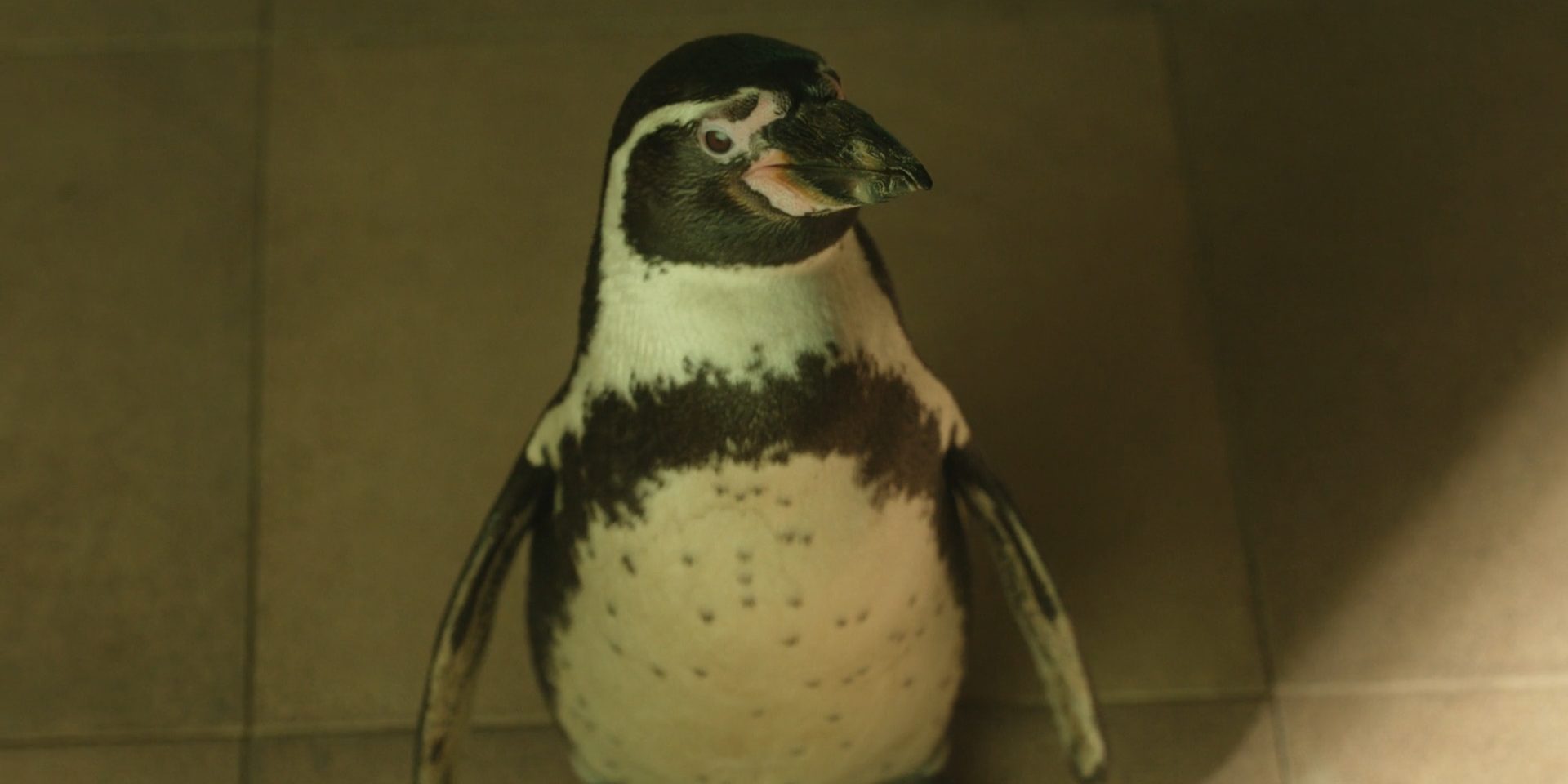
Just like the narrative shows, the teacher developed a meaningful bond with the penguin, changing him for the better. An important part of the storyline is the way it looks at environmental issues, which is mainly represented by the unfortunate oil spill that killed all the companions of Juan Salvador in Uruguay, just before Michell rescued him. The author said that he wished to see people become more responsible for the environment and take care of it. He also praised the movie for its authentic portrayal of his own story, which happened during a turbulent time in Argentina, leading to several deaths and arrests, some of which remain unaccounted for. The movie uses cinematic liberty to convey deeper messages, getting into the core of it without dealing too much with the mundane aspects of Michell’s life.
The writer acknowledged that Coogan’s performance led to the feature being received more positively by a larger audience. He also hoped that the narrative would touch the conscience of the viewers while also providing them with entertainment and a cinematic experience. Although the script portrays him as a middle-aged man, in reality, Michell was only 23 years old when he went to Argentina as a teacher. The mid-credits of the film inform the viewers that Tom Michell taught at the college for two more years after the death of Juan Salvador. The circumstances that led to the discovery of long-lost footage related to Juan Salvador are also mentioned in the conclusion. The author wrote his memoir only after he found footage of the penguin swimming in the college pool.
The Movie Portrays the Political Reality of a Tubulent Phase in Argentine History
In 1976, Jorge Rafael Videla, Emilio Eduardo Massera, and Orlando Ramón Agosti led a military coup, seizing power in Argentina. They overthrew the existing government by installing Videla as president and dissolving the National Congress. The regime led by the military imposed strict censorship, leading to public unrest in the country, driving it away from freedom and democratic principles. Trade unions were banned due to their supposed Marxist principles, and state and municipal governments were under the dictatorial authority of the state, leading to a sudden centralization of political power against the civilian population.
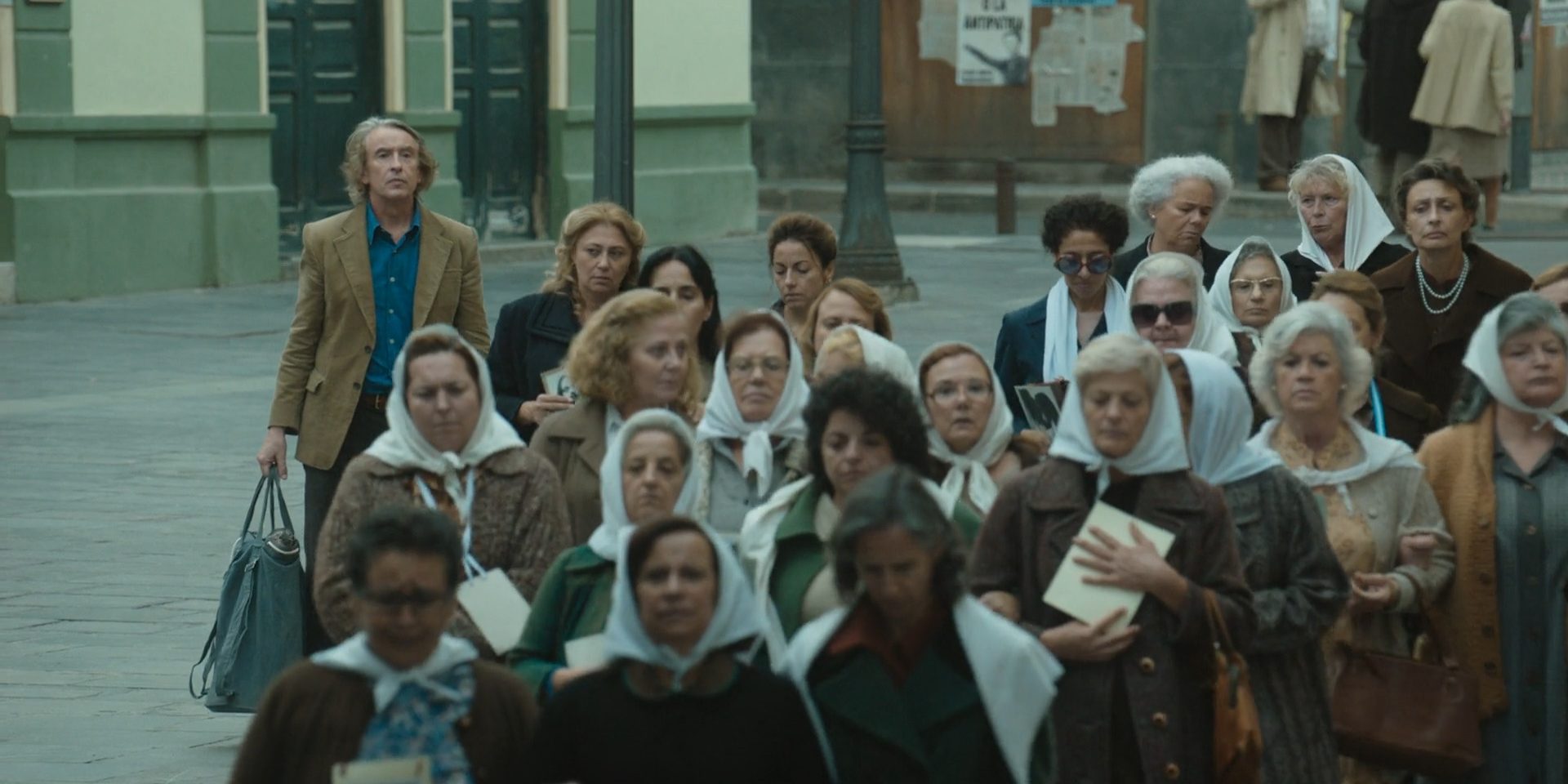
The movie accurately portrays the unrest during the time and the way it affected the lives of the common people of Argentina. We see the prices of groceries going up, people being stalked by secret agents, and the government treating even the slightest whispers of dissent as a rebellion against the state. Under Videla’s leadership, the regime launched a dangerous and often violent campaign of state excess and brutality, which involved the illegitimate killings of thousands and the so-called disappearance of countless others. This period of extensive human rights abuses became infamously known as Argentina’s Dirty War.
The film acknowledges in the mid-credits that the military dictatorship lasted for seven years and that almost 30,000 people went missing during the period, leading to tragedy and civilian unrest. The protesters dubbed the ‘Mothers of Plaza De Mayo’ are also credited in the story, featuring a scene where Maria joins a group of protesters marching for Sofia’s release. A note in the mid-credits also stated that the women are active to this day.
The Storyline Contains an Emotional Tale of Hope and Liberty
The emotional nucleus of the drama is in the relationship between Juan Salvador and Tom Michell, which is an unlikely bond that leads to the protagonist’s rediscovery of his own soul. In an interview with Reuters, Steve Coogan said that the film team had elaborate conversations about combining the tale of a man and a penguin with a bloody period in Argentine political history. He stated, “I thought working with penguins and children would be a chaotic experience, but because we had to look after the welfare of the penguins and not make any loud noises, the atmosphere on set was actually quite calm and it had a ripple effect through the crew.”
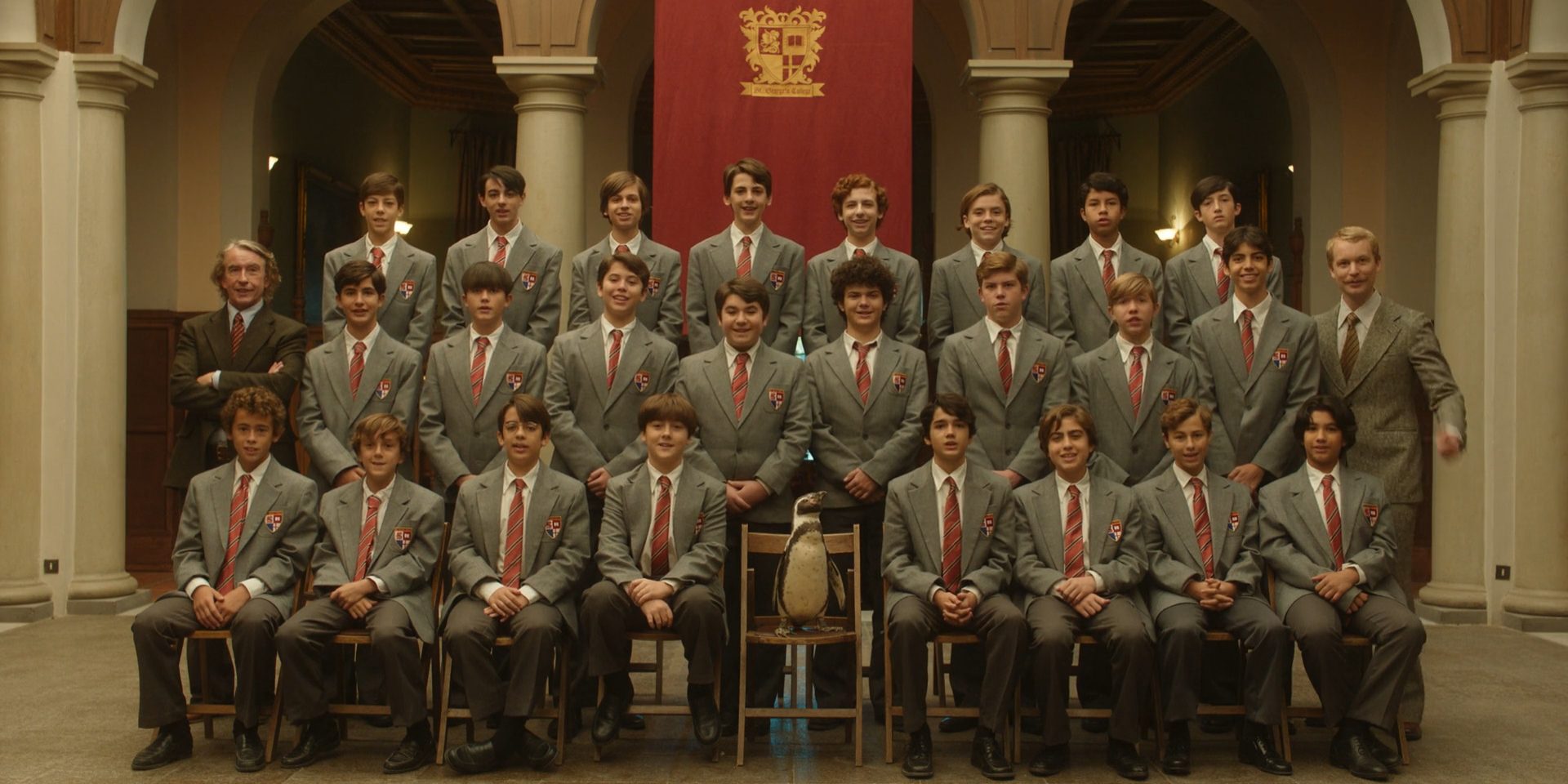
The actor also said that penguins embody mindfulness, and don’t worry about the future or dwell on the past. Instead, they simply exist in the present moment, which offers a valuable lesson for people in general. The storyline captures this sentiment in a meaningful way, diving deep into the souls of the characters. The message of hope and liberty is beautifully delivered in important scenes by showcasing how Michell, Headmaster Buckle, the students, Sofia, and Maria are able to fight against their own limitations and the dictatorship to achieve peace and happiness. Sofia’s tale is of special significance as it portrays her as a fearless young girl who doesn’t give up despite the violence by much stronger forces who seek to take away her liberty.
Maria’s hope, combined with Michell and Buckle’s efforts, leads to her being released by the secret forces. The message of hope and liberty delivered in the narrative finds universal resonance and presumably connects with people who don’t even belong to Argentina or know much about the country’s history. Juan Salvador becomes more than just an animal, but a symbol of happiness, courage, and freedom, leading the characters to have a better outlook on life. It makes the movie feel more authentic and relevant in a world that’s still reeling from the tragedies of war, unrest, and violence. The commentary, built on the basis of real-life experiences, adds to the strength of the film.
Read More: Is Untamed Based on a True Story?

